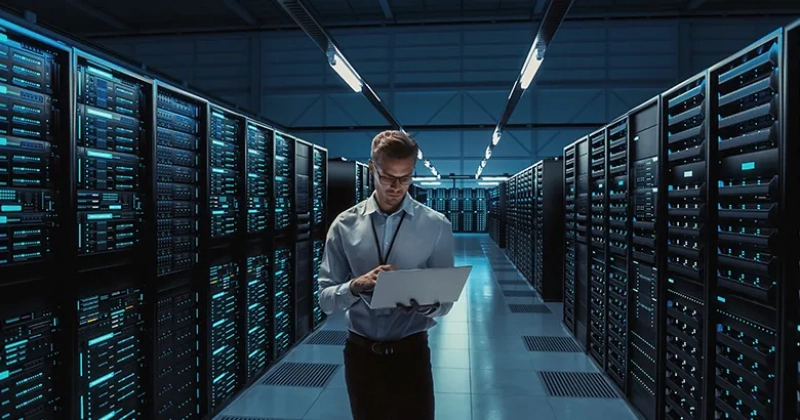As enterprises navigate this digital landscape, they face more pressure than ever to manage and secure their data efficiently. Therefore, Colocation facilities, a relatively new solution, have come into the limelight and offer numerous benefits. This article outlines 12 reasons why businesses choose these facilities to host their data.
1. Cost Efficiency
Hosting a data center in-house can be costly. As an alternative, Pittsburgh colocation facilities enable providers to share infrastructure costs among multiple clients, which results in cost savings. It reduces the economic pressures on each company and allows them to utilize their resources more effectively.
2. Enhanced Security
Any organization prioritizes security. Some data centers boast high-tech security features, such as surveillance cameras, biometric access controls, and around-the-clock monitoring, which colocation facilities also have. They come with these features to ensure that the data and equipment are safe.
3. Reliable Power and Cooling

Data centers rely on stable power and cooling. Colocation facilities typically have redundant power supplies and cooling systems, which limit the chance of downtime. This consistency means that businesses can continue to operate without any disruptions.
4. Scalability
The data needs of businesses often grow in proportion to their growth. Colocation enables companies to scale quickly without incurring the capital expense of additional infrastructure. This aspect allows organizations to scale their resources in line with demand.
5. Improved Connectivity
Colocation facilities allow access to different internet connections and other network providers. This connectedness enhances performance and reliability by providing speedy and effective data transmission. It enhances user experiences for businesses and lowers latencies.
6. Disaster Recovery
Unforeseen circumstances or events can hinder operations and lead to data loss. Every colocation facility provides excellent disaster recovery solutions. An organization can minimize downtime and loss by being able to get up and running quickly after an unplanned event by hosting data in a password-protected off-site area, thus allowing for rapid service restoration.
7. Focus on Core Activities
A data center is not an easy thing to manage; it requires time and expertise. It enables businesses to eliminate the burden of maintenance and focus on their core operations. This change frees enterprises to focus on growing and innovating their business, instead of managing complex infrastructure.
8. Compliance and Certification
For businesses, meeting regulatory compliance is a must-have. Colocation centers typically adhere to high compliance standards and hold various certifications. Compliance with this ensures that data handling is in accordance with regulatory requirements, which adds another level of trust and reliability.
9. Access to Expertise
Colocation provides facility management experts specializing in data centers. Without having to bring on additional full-time resources, businesses can tap this expertise. However, having access to specific specialists ensures they deal with technical problems efficiently and resolve them quickly.
10. Environmental Responsibility
Sustainability is one trend that is here to stay for businesses. Because many colocation facilities employ environmentally friendly practices, they often feature energy-efficient cooling, and customers may even have the option to pay their utility bills with renewable energy. This aspect will help companies lower their carbon emissions.
11. Flexibility in Location
Choosing the perfect place for a data center is not so easy. Unlike a private data center, which typically offers only one location, colocation facilities are more flexible, as they have multiple locations. Depending on their strategic targets (i.e., reduced latency, compliance regulations, or proximity to customers), businesses can pick sites.
12. Competitive Advantage
Having a competitive edge is the other benefit of using a colocation facility. It enables businesses to offer their clients more tailored services, with enhanced security, reliability, and connectivity. This benefit gives companies a competitive edge, differentiating them in the market and leading to more people choosing them as an option, which in turn contributes to their growth and success.
Conclusion
Well-equipped colocation facilities offer several advantages for businesses seeking efficiency and security. Organizations utilize these facilities to reduce costs, optimize operations, and focus on their commercial objectives. Colocation remains a vital service for organizations seeking to succeed in an increasingly technology-driven landscape.
Post Comment
Be the first to post comment!





